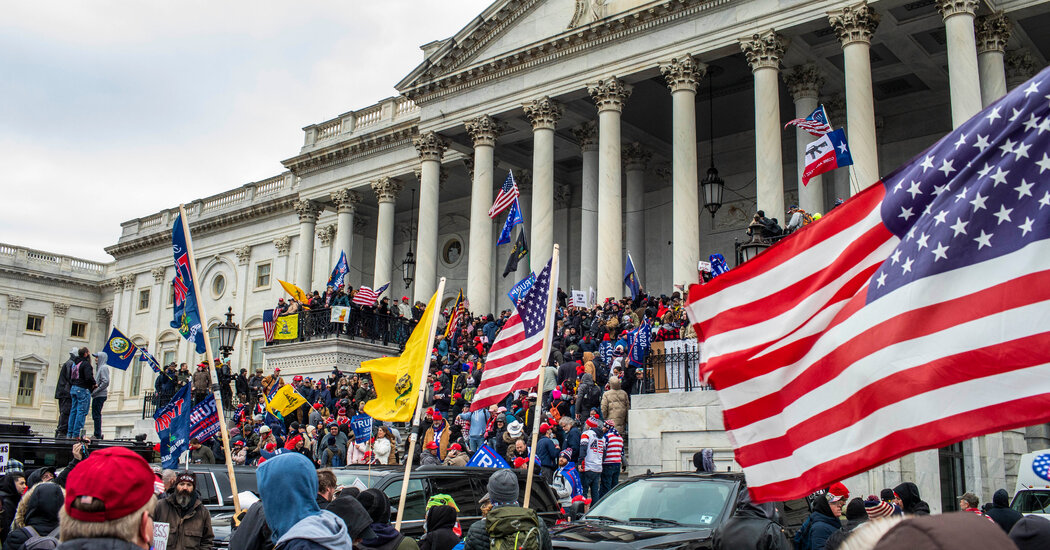
Mr. Tarrio was not at the Capitol on Jan. 6, having been kicked out of Washington by a local judge after he returned to the city two days earlier and was arrested over the banner-burning incident and for carrying two high-capacity firearm magazines.
But prosecutors plan to argue to the jury that three of his co-defendants — Joseph Biggs of Ormond Beach, Fla.; Ethan Nordean of Auburn, Wash.; and Zachary Rehl of Philadelphia — took the lead on the ground that day. A fourth co-defendant — Dominic Pezzola of Rochester, N.Y. — is best known for having broken one of the first windows at the Capitol with a stolen police riot shield.
As part of the government’s case, jurors are also likely to hear from several former Proud Boys who have since pleaded guilty, including two from North Carolina: Mr. Bertino and Charles Donohoe. The government may also seek to introduce evidence about a document called “1776 Returns” that was given to Mr. Tarrio by one of his girlfriends and detailed a plan to surveil and storm several government buildings around the Capitol on Jan. 6.
Recent court filings suggest that the lawyers for the Proud Boys intend to mount a robust defense. Echoing the lawyers in the Oath Keepers case, their central argument will be to claim that while the defendants breached the Capitol building, they did not plan the attack in any way that rose to the level of seditious conspiracy.
Indeed, the lawyers have claimed in court papers that many of the government’s own witnesses have provided statements to prosecutors contradicting the assertion that the Proud Boys had any sort of plan to assault the Capitol. The lawyers have also maintained that the F.B.I. had as many as eight informants in the group before Jan. 6 and that none of them reported back about an intent to storm the building, raising questions, as one lawyer wrote, about “whether a Proud Boy conspiracy plan” to commit sedition “ever existed or could have existed.”
In a more general sense, the defense will seek to persuade the jury that the Proud Boys are not racist brawlers, as they are often portrayed by the media, but more like what the founder of the group, Gavin McInnes, has long described them as: a patriotic men’s drinking club. At one point, the lawyers had thought they might call Mr. McInnes as a witness for the defense, but that remains unclear.
Still, the jury is likely to get a glimpse of Proud Boys culture as the lawyers relate how dozens of members of the group descended on Washington to support Mr. Trump on Jan. 6, with some of the leaders moving into an Airbnb rental apartment near Chinatown.



